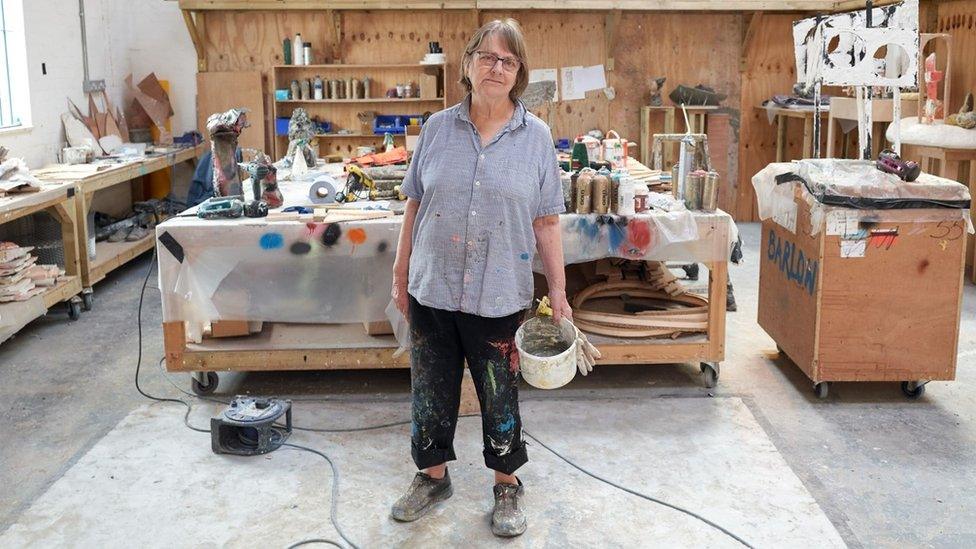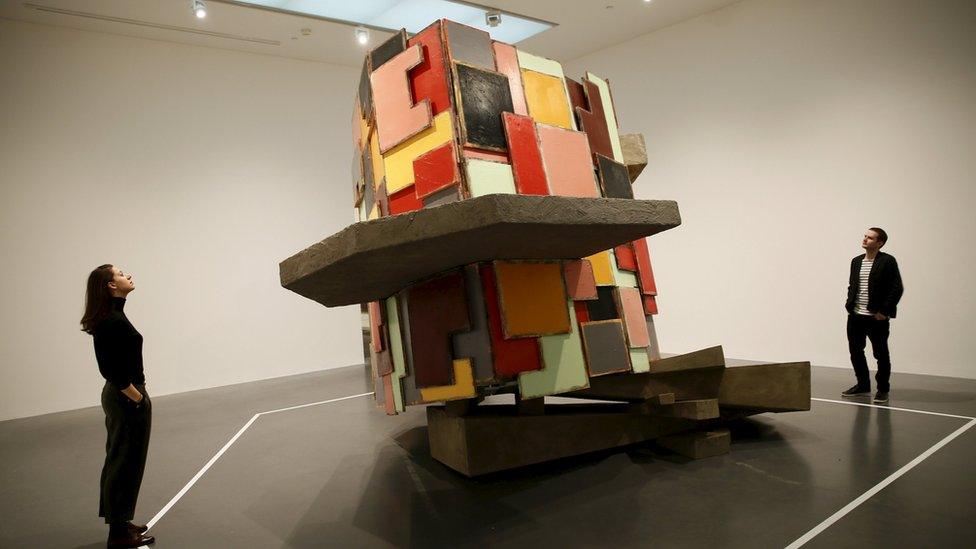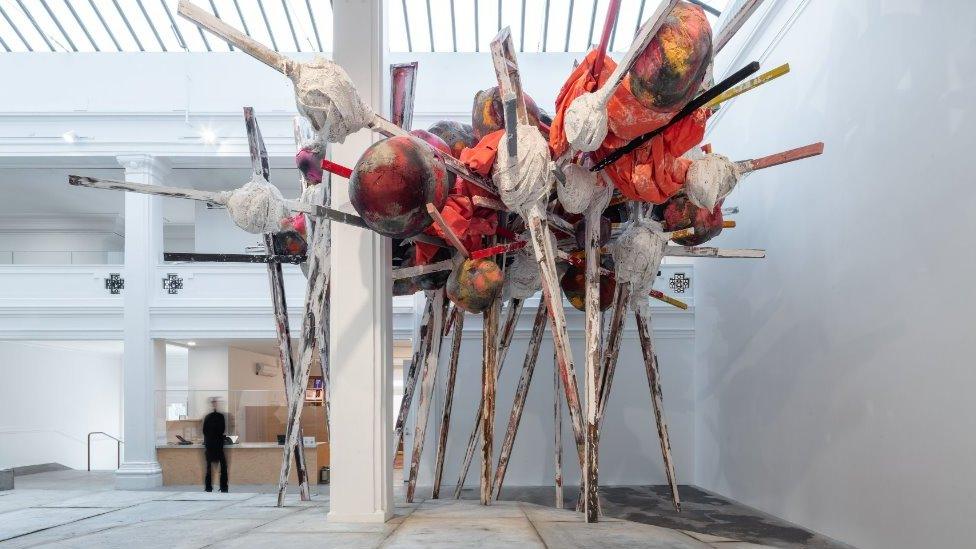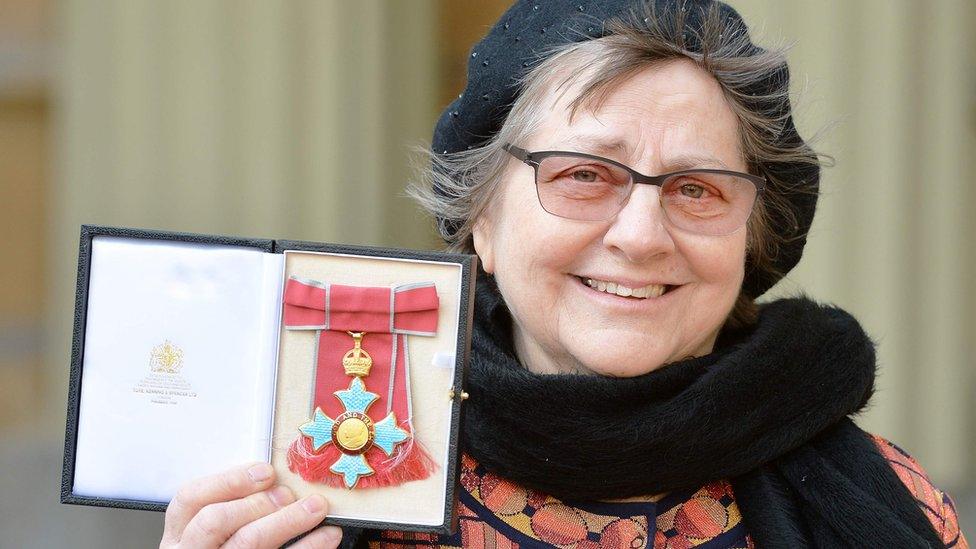Phyllida Barlow: Renowned British sculptor dies aged 78
- Published

Phyllida Barlow, pictured in her studio in 2018, had a long career teaching art before gaining international recognition with her sculptures
Celebrated British sculptor Phyllida Barlow has died aged 78.
The Newcastle-born artist, known for her large installations, had a long career teaching art before she got her major breakthrough.
Barlow often developed her colossal sculptural projects using everyday DIY materials such as plywood, cardboard, plaster, cement, fabric and paint.
The artist's gallery, Hauser & Wirth, described her as a "guiding light and inspiration to so many".
She is survived by her husband Fabian Peake and their five children, the gallery said.

Phyllida Barlow's 'untitled: upturnedhouse' sculpture was displayed at Tate Modern
Born in 1944, her family moved to Richmond in London after the Second World War, with the bomb damage and the rebuilding of the capital said to be life-long sources of inspiration for her art.
Her body of work, which also includes drawing, installation and writing, has been presented in solo exhibitions around the world.
Barlow enrolled at the Chelsea School of Art in London in 1960 and initially studied painting before switching to sculpture.
She later transferred to the Slade School of Art, where she experimented with materials such as plaster, resin, fibreglass and wood.
Barlow later taught at several art colleges before returning to Slade in 1988, where she spent 20 years as a professor.
Phyllida Barlow will represent the UK at the Venice Biennale.
Hauser & Wirth said a London solo show led to her being invited to exhibit at the Serpentine Gallery in 2010, bringing her work to a wide international audience.
At the age of 65, Barlow entered a period of global recognition, the gallery said, with her work the subject of numerous high profile solo exhibitions across Europe and the US.
Barlow, who was accepted as a member of the Royal Academy of Arts in 2011, was awarded a CBE for her services to the arts in 2015 and a damehood in 2021.
In 2017 she was selected to represent Britain at the Venice International Art Biennale, recognised as the most important contemporary art festival in the world.

This huge 2020 'untitled undercover ii' piece was made from steel, timber, plywood, fabric, paint, foam, polystyrene, plaster and cement
Frances Morris, Director Tate Modern, said: "Barlow's practice implicitly acknowledges that in a world saturated with objects, the role of sculpture and the job of the sculptor might be less about making things than generating a particular type of experience of the work, and of the world in which it temporarily resides."
Former BBC arts editor Will Gompertz previously described her work as "using the destroyed and the discarded, the fragile and the overlooked, to make works that are often displayed in the marbled halls of the art establishment".
Iwan Wirth, president of Hauser & Wirth, said Barlow was a "cherished friend as well as a visionary artist".
"Her generosity of spirit extended through her art, her writings, and her many years of teaching and mentorship," he said.
"A truly thoughtful and companionable human being, Phyllida was a guiding light and inspiration to so many."
Related topics
- Published4 March 2016
